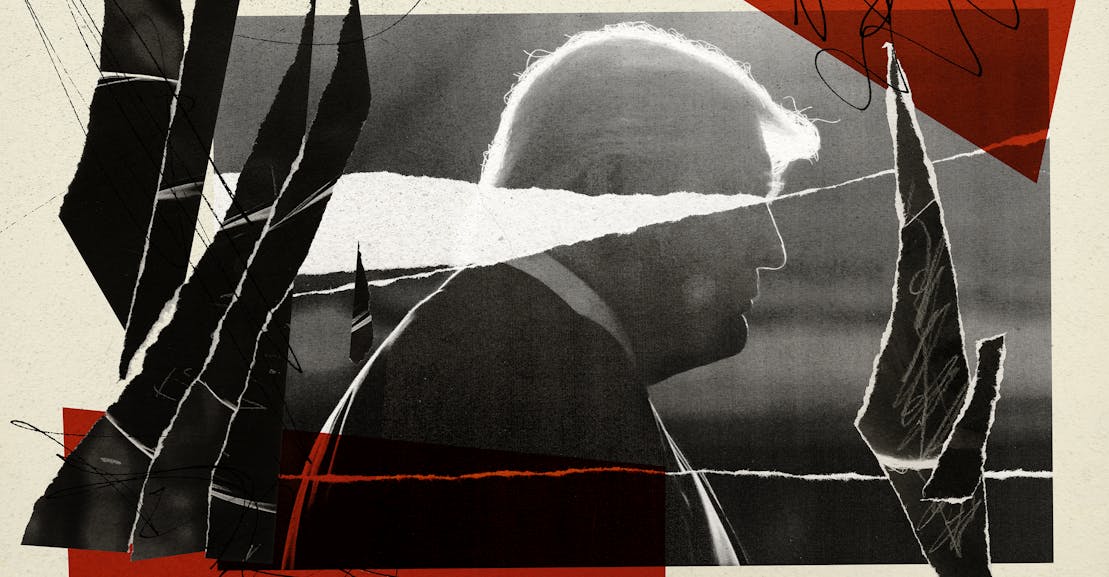Commentators have worried from the moment his presidency began that Trump might challenge the 2020 election results or even stay in the White House in the event of a loss; anxieties about this are so palpable in the press that Trump has joked about it from time to time. The impact the coronavirus pandemic has already had on the election—the innate challenges of the attempted transition to mass vote by mail, mismanagement and suspected shenanigans at the intentionally underfunded Postal Service, the fact that the results might be unclear for days or even weeks after Election Day even in the best foreseeable circumstances—has only compounded Democratic concerns about how November will play out.
On Tuesday, The Daily Beast reported that a coalition of progressive groups calling itself the “Democracy Defense Nerve Center” met last week to develop a game plan. “Over the course of two hours, participants broached the question of what the progressive political ecosystem can functionally do in a series of election scenarios,” the Beast’s Sam Stein wrote. “They began charting out what it would take to stand up a multi-state communications arm to fight disinformation, a training program for nonviolent civil disobedience, and the underpinnings of what one official described as ‘mass public unrest.’” In a Thursday piece, Progressive Change Campaign Committee co-founder Adam Green similarly told The Atlantic’s Ron Brownstein that postelection protests defending a full vote count might resemble “the Black Lives Matter protests on steroids, as people come into the streets to defend their democracy and to defend the counting of votes.”
Support for direct and dramatic action is coming from at least a few unlikely places. David Brooks’s column for The New York Times last week, “What Will You Do if Trump Doesn’t Leave?” expressed hope that our democracy might be saved, if push comes to shove, by “a group of sober people who are militant about America, who can see reality unblinkered by the lens of partisanship, and who are finally compelled to organize.” But a call to arm the moderate columnists this was not: Brooks envisions a massive, peaceful democratic uprising like those we’ve seen elsewhere across the globe over the last several years. “If Trump claims a victory that is not rightly his, a few marches in the streets will not be an adequate response,” he wrote. “There may have to be a sustained campaign of civic action, as in Hong Kong and Belarus, to rally the majority that wants to preserve democracy, that isolates those who would undo it.”
It should be said that there’s no real way for Trump to meaningfully hold onto power if it’s determined that he lost the election when all is said and done. Legal experts and scholars of the presidency have been trying to reassure the public about this for some time. Unless Trump can persuade the entire federal government and its law enforcement to do his bidding, he will no longer be president on Inauguration Day, even if he sits at the Resolute Desk with his arms crossed and refuses to leave the White House.
It also shouldn’t be forgotten that there was intense concern about Trump refusing to concede the election in 2016, particularly after he suggested he might not at the last presidential debate. “Democracies require public legitimacy for their survival,” The Atlantic’s Peter Beinart wrote that night. “When powerful actors withhold that legitimacy, the system crumbles.” Later that month, Harvard’s Steven Levitsky told The New York Times that Trump’s comments resembled strongman rhetoric from developing and pseudo-democratic countries. “This is the stuff that we see in Russia and Venezuela and Azerbaijan and Malawi and Bangladesh, and that we don’t see in stable democracies anywhere.” The hubris of this discourse and its presumptions about the state of the race make for some bleak comedy in hindsight. “Trump,” The Washington Post’s Chris Cillizza warned in one October column, “isn’t going to simply disappear on Nov. 9.” How right he was!
